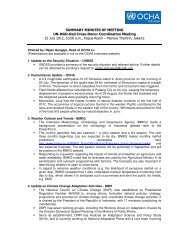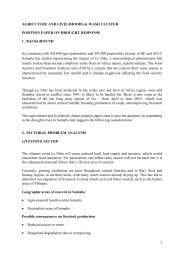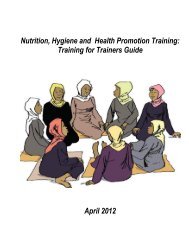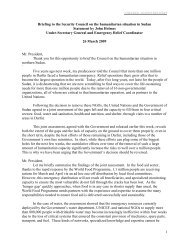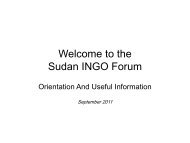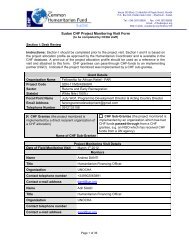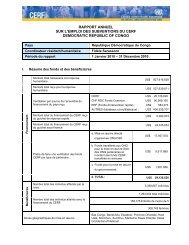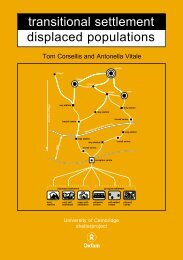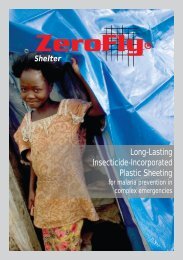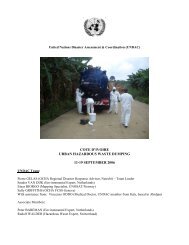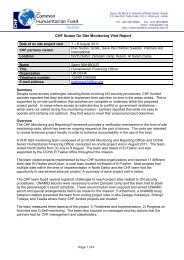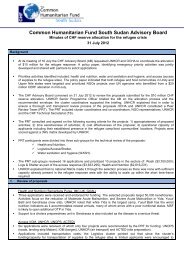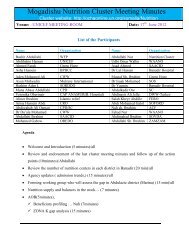Shelter - NFI SPHERE - OCHANet
Shelter - NFI SPHERE - OCHANet
Shelter - NFI SPHERE - OCHANet
Create successful ePaper yourself
Turn your PDF publications into a flip-book with our unique Google optimized e-Paper software.
Minimum Standards in <strong>Shelter</strong>, Settlement and Non-Food Items<br />
host community. Any response should be informed by the steps taken<br />
by the affected households in the initial aftermath of the disaster, using<br />
their own skills and material resources to provide temporary shelter or<br />
to begin the construction of new, longer-term dwellings. <strong>Shelter</strong><br />
responses should enable affected households to incrementally upgrade<br />
from emergency to durable shelter solutions within a reasonably short<br />
time and with regard to the constraints on acquiring the additional<br />
resources required.<br />
Involving women in shelter and settlement programmes can help ensure<br />
that they and all members of the population affected by the disaster<br />
have equitable and safe access to shelter, clothing, construction<br />
materials, food production equipment and other essential supplies.<br />
Women should be consulted about a range of issues such as security and<br />
privacy, sources and means of collecting fuel for cooking and heating,<br />
and how to ensure that there is equitable access to housing and supplies.<br />
Particular attention will be needed to prevent and respond to genderbased<br />
violence and sexual exploitation. It is therefore important to<br />
encourage women’s participation in the design and implementation of<br />
shelter and settlement programmes wherever possible.<br />
Links to other chapters<br />
Many of the standards in the other sector chapters are relevant to this<br />
chapter. Progress in achieving standards in one area often influences<br />
and sometimes even determines progress in other areas. For a response<br />
to be effective, close coordination and collaboration are required with<br />
other sectors. Coordination with local authorities and other<br />
responding agencies is also necessary to ensure that needs are met, that<br />
efforts are not duplicated, and that the quality of shelter, settlement<br />
and non-food item interventions is optimised.<br />
For example, the complementary provision of adequate water supply<br />
and sanitation facilities in areas in which shelter assistance is being<br />
provided is necessary to ensure the health and dignity of the affected<br />
households. Similarly, the provision of adequate shelter contributes to<br />
the health and well-being of displaced households, while essential<br />
cooking and eating utensils are required to enable food assistance to be<br />
<strong>Shelter</strong><br />
209



